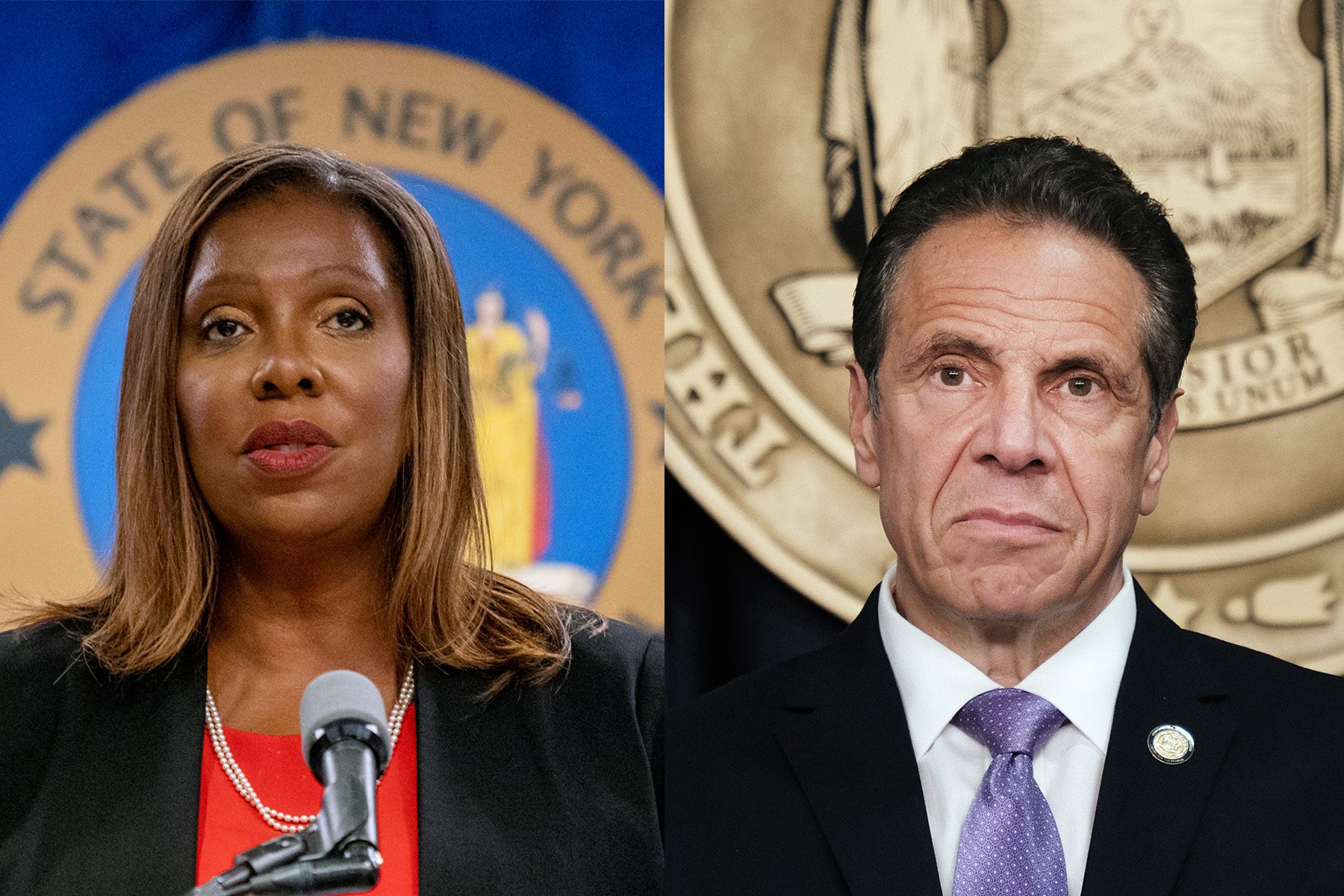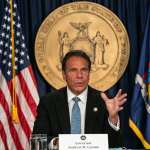In the face of a detailed report released Tuesday by the New York attorney general’s office, Gov. Andrew Cuomo issued a video response and an 85-page rebuttal indicating that he has no intention of resigning over accusations of sexual harassment from nearly a dozen women.
Cuomo’s response, which included showing a slideshow of pictures of himself holding and kissing the faces of various private citizens, follows a longer trend of powerful men staying their course in the face of controversies that they’re involved in — despite documentation and formal inquiries into their behavior.
Cuomo’s insistence that he will not resign has continued since March, despite leading New Yorkers from his own party such as state Senate Majority Leader Andrea Stewart-Cousins, House Democratic caucus leader Hakeem Jeffries, Senate Majority Leader Chuck Schumer and Sen. Kirsten Gillibrand calling for his resignation. The State Assembly speaker, Carl Heastie, issued a statement saying that Cuomo “can no longer remain in office,” adding to the likelihood that lawmakers may open impeachment proceedings.
In his most definitive response to the investigation, President Joe Biden told reporters on Tuesday that he thinks Cuomo should resign. House Speaker Nancy Pelosi also formally called for the governor’s ouster, after saying in March that he “should look inside his heart … to see if he can govern effectively.”
Several other men politicians have faced sexual misconduct allegations, but ultimately stayed in their positions. Republican Rep. Matt Gaetz, under investigation by the Justice Department on potentially violating sex trafficking laws, denied the allegations against him in April and vowed to fight after two senior staffers quit in the wake of the public outcry. Joel Greenberg, one of Gaetz’s former associates, pleaded guilty in May to six criminal charges related to the case.
In previous years, men Democratic lawmakers have also weathered scandals by not bending to calls to resign. Virginia Gov. Ralph Northam, who faced widespread calls for resignation in 2019 after he initially admitted — then later revised his admission — to appearing in a 1984 yearbook photo depicting blackface and a Ku Klux Klan outfit, apologized for his actions and moved forward, despite the chair of the Congressional Black Caucus and many of his peers calling for his ouster.
Daylin Leach, a member of the Pennsylvania state Senate, faced pressure from state Democratic party leaders to resign in 2019 following a law firm’s report describing “a lengthy pattern of troubling behavior” towards women, The Philadelphia Inquirer reported at the time. He later lost in a primary race.
In contrast, former U.S. Rep. Katie Hill of California stepped down in late 2019 following a House ethics investigation into allegations that she had an inappropriate sexual relationship with one of her staffers. She told Axios in June that she believes her scandal was “politically survivable” and that she is considering another run for Congress.
“Having seen other people who’ve had scandals since I left, [Andrew] Cuomo and, you know, of course, Matt Gaetz … you see that and, of course, they don’t resign,” Hill told “Axios on HBO.”
The months-long investigation into Cuomo, details of which were released by the attorney general’s office on Tuesday, found that the governor sexually harassed nearly a dozen women, many of them state employees, over a period of several years through unwanted kissing, groping, and by making inappropriate comments.
New York Attorney General Letitia James said that her office has provided a copy of the report to the state’s Assembly Judiciary Committee — the body that began an impeachment investigation into Cuomo in March — and that the AG’s office will cooperate with the committee’s investigation.
Details of the investigation released Tuesday ramped up political pressure for the State Assembly to take action, as several New York lawmakers and assembly members pressured Heastie on Tuesday to launch formal impeachment proceedings. Eric Adams, the Democratic nominee for New York City mayor, also called for impeachment if Cuomo does not resign.
The rising pressure could present an opportunity for Kathy Hochul, New York’s lieutenant governor. If Cuomo is removed from office, or if he later resigns, then Hochul would succeed him and become the first woman to lead the state.
“I believe these brave women & admire their courage coming forward,” Hochul said in a statement on Tuesday, saying the report described “repulsive” behavior. “No one is above the law. Under the New York Constitution, the Assembly will now determine the next steps,” she said, adding that, considering the line of succession, she would not comment further.
This article has been updated throughout to reflect the day’s news developments.
“She’s in a difficult position,” former Rep. John J. LaFalce, Hochul’s former boss, told the New York Times in March, on the lieutenant governor’s response to the crisis that could engulf Cuomo’s career. LaFalce described her as both “extremely loyal” to Cuomo and “one of the most outspoken persons against any type of sexual harassment.”
Cuomo’s office did not respond to requests for further comment.
When the first allegations came out in March, Cuomo said that he did not plan to resign, and on Tuesday he appeared to stay on that course, pointing to work his office will continue undertaking in response to the coronavirus pandemic. Cuomo is currently under a separate, ongoing investigation by the New York attorney general’s office into using state resources while writing a memoir on the pandemic.
Heastie — who authorized the earlier impeachment inquiry — had told the Times Union on Friday that James’s investigation “may not be enough for the legislature to begin an impeachment proceeding of the governor.” After the report was released, Heastie said in a statement that “it is abundantly clear to me that the governor has lost the confidence of the Assembly Democratic majority and that he can no longer remain in office.”
Eleven women accuse Cuomo of harassment in the investigation. Lawyers leading the probe said at Tuesday’s press conference that all victims had either provided written documentation, witnesses or contemporaneous notes of their accounts. Investigators interviewed 179 individuals and took testimony from 41 of them.
One state trooper currently serving in the unit tasked with protecting the governor alleges that Cuomo referenced her sex drive in conversation, while an executive assistant alleges that the governor grabbed her breast under her blouse. An executive assistant, a state trooper, two former aides — Lindsey Boylan and Ana Liss — and Anna Ruch, a wedding guest of one of Cuomo’s senior aides, all allege that Cuomo kissed them on their cheeks and hands. The executive assistant and Boylan, the first woman to accuse Cuomo of harassment, also allege that Cuomo kissed them on the lips at least once.
Two women, the executive assistant and one state employee named in the investigation, both allege that Cuomo grabbed their butts in separate instances in 2019 and 2020. In one occasion with the assistant and another with the state employee, the women say Cuomo was either having his picture taken with them or was taking a selfie.
In his testimony for the investigation, Cuomo denied touching anyone inappropriately and accused the probe of being politically motivated. In his filmed response on Tuesday afternoon, Cuomo denied specific allegations, including groping one woman in the investigation, whose lawyer has suggested a legal claim may be taken in the future for damages, he said.
In Cuomo’s video response to the investigation, after showing a slideshow of himself holding and kissing people’s faces, including political figures, the governor characterized the behavior as his normal demeanor and how he treats everyone.
“I now understand that there are generational or cultural perspectives that frankly, I hadn’t fully appreciated. And I have learned from this.”
Cuomo said that he would enroll in a new sexual harassment training program with the rest of his team.







